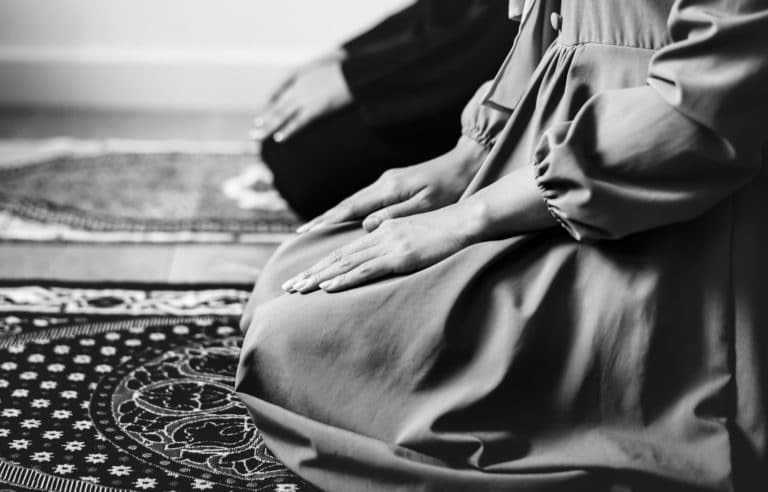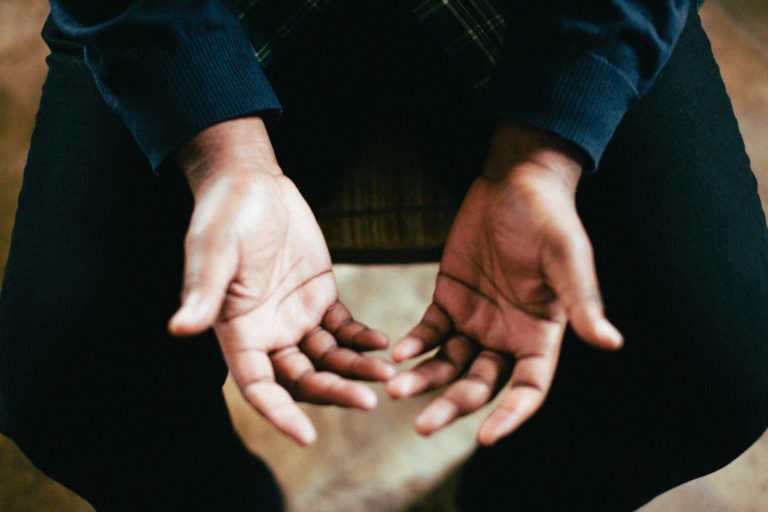Rami Nashashibi uses graffiti, calligraphy, and hip-hop in his work as a healing force on the South Side of Chicago. A Palestinian-American, he started his activism with at-risk urban Muslim families, especially youth, while he was still a college student. Now he’s the leader of a globally-emulated project converging religious virtues, the arts, and social action. And he is a fascinating face of a Muslim-American dream flourishing against the odds in post-9/11 America.
Islam
Featured Items
This year Muslims are experiencing a Ramadan like no other. The month is usually a period of both intimacy and great community. Now Muslims are improvising, as in many places the rituals of Ramadan must be experienced at home or online. This show, recorded in 2009, grew out of an invitation to Muslim listeners to reflect on what it means to be part of what often is referred to in the abstract as “the Muslim world.” We received responses from all over the world and were struck by the vivid stories about Ramadan itself, across a remarkable spectrum of life and spiritual sensibility.
View
- List View
- Standard View
- Grid View
21 Results
Filters
This year Muslims are experiencing a Ramadan like no other. The month is usually a period of both intimacy and great community. Now Muslims are improvising, as in many places the rituals of Ramadan must be experienced at home or online. This show, recorded in 2009, grew out of an invitation to Muslim listeners to reflect on what it means to be part of what often is referred to in the abstract as “the Muslim world.” We received responses from all over the world and were struck by the vivid stories about Ramadan itself, across a remarkable spectrum of life and spiritual sensibility.
Community organizers Rami Nashashibi and Lucas Johnson have much to teach us about using love — the most reliable muscle of human transformation — as a practical public good. Nashashibi is the founder of the Inner-City Muslim Action Network, a force for social healing on Chicago’s South Side. Johnson is the newly-named executive director of The On Being Project’s Civil Conversations Project. In a world of division, they say despair is not an option — and that the work of social healing requires us to get “proximate to pain.”
The tensions of our time are well-known. But there are stories that are not being told, because they are not violent and not shouting to be heard. One of them is that all over this country, synagogues and mosques, Muslims and Jews, have been coming to know one another. There is friendship. There are initiatives that are patiently, and at human scale, planting the seeds for new realities across generational time. As part of the Civil Conversations Project, a live conversation at the Union for Reform Judaism’s General Assembly in Boston between Imam Abdullah Antepli and Rabbi Sarah Bassin.
Rami Nashashibi uses graffiti, calligraphy, and hip-hop in his work as a healing force on the South Side of Chicago. A Palestinian-American, he started his activism with at-risk urban Muslim families, especially youth, while he was still a college student. Now he’s the leader of a globally-emulated project converging religious virtues, the arts, and social action. And he is a fascinating face of a Muslim-American dream flourishing against the odds in post-9/11 America.
In a probing and personal conversation, Reza Aslan opens a refreshing window on religion in the world and Islam in particular. It’s a longer view of history and humanity than news cycles invite — certainly when it comes to the Arab Spring, or to ISIS. His life is a kind of prism on the fluid story of religion in this century. But in a globalized world, we all have a personal stake in how this story unfolds.
For over a decade, the French-American anthropologist Scott Atran has been listening to the hopes and dreams of young people from Indonesia to Egypt. He explores the human dynamics of what we analyze as “breeding grounds for terrorism” — why some young people become susceptible to them and others, in the same circumstances, do not. His work sheds helpful light on the question on so many of our minds as we watch horrific news of the day: How could this happen — and how could we possibly help transform it?
The 13th-century Muslim mystic and poet Rumi has long shaped Muslims around the world and has now become popular in the West. Rumi created a new language of love within the Islamic mystical tradition of Sufism. We hear his poetry as we delve into his world and listen for its echoes in our own.
We experience a vision of caution and hope planted in a long view of Arab and Palestinian history, culture, and time in Palestinian philosopher Sari Nusseibeh. His personal story is steeped in layers of identity and, as he says, living legend, which shape history in the making today.
Mohammad Darawshe is Arab with an Israeli passport — a Muslim Palestinian citizen of the Jewish state. Like 20 percent of Israel’s population, he is, as he puts it, a child of both identities. He brings an unexpected way of seeing inside the Middle Eastern present and future.
British activist Ed Husain was seduced, at the age of 16, by revolutionary Islamist ideals that flourished at the heart of educated British culture. Yet he later shrank back from radicalism after coming close to a murder and watching people he loved become suicide bombers. He dug deeper into Islamic spirituality, and now offers a fresh and daring perspective on the way forward.
Nine Muslims, in their own words, reveal a creative convergence of Islamic spirituality and American identity that is unfolding, largely unnoticed, in the United States. A lawyer turned playwright, a teacher who’s a lesbian, a retired federal prosecutor — all giving shape to the nature and meaning of Muslim identity, and sharing how tricky it can be to unravel Islamic religious tradition from the many cultural traditions.
We seek fresh insight into the history and the human and religious dynamics of Islam’s Sunni-Shia divide. Our guest says that it is not so different from dynamics in periods of Western Christian history. But he says that by bringing the majority Shia to power in Iraq, the U.S. has changed the religions dynamics of the Middle East.
Ingrid Mattson, the first woman and first convert to lead the Islamic Society of North America, describes her experience of Islamic spirituality, which she discovered in her twenties after a Catholic upbringing. We probe her unusual perspective on a tumultuous age for Islam in the West and around the world.
A 30-year-old, Indian-American Muslim and former Rhodes Scholar is setting out to change the way young people relate to their own religious traditions and those of others. Al-Qaeda is the most effective youth program in the world, he says, and we neglect this work at our peril.
Is there such a thing as the Muslim world? Is the “veil” a sign of submission or courage? Is our Western concern about women in Islam really a concern for the well-being of women? Our guest, Egyptian-American Leila Ahmed, challenges current thought on these and other questions.
February 16, 2006
Vincent Cornell
The Face of the Prophet: Cartoons and Chasm
Our guest, an American Muslim and religious scholar, helps untangle the knot of violent and bewildered reactions to cartoons depicting the Prophet Muhammad.
In the years since the terrorist attacks of September 11th, 2001, scrutiny of the religion of Islam has become part and parcel of our public life. In forums of all kinds, often guided by non-Muslim pundits, we ask, what does terrorism have to do with the teachings of the Qur’an? Can Islam coexist with democracy? Is Islam capable of a reformation, or has it fallen into hopeless decay?
We pose these questions to a spectrum of American Muslims who describe themselves as devout and moderate. Our guests take us inside the way Muslims discuss such questions among themselves, and they suggest that when we consider “the Muslim world” we must look first at Islam in this country. In this open society, they say, Islam has found a home like no other.
In this personal exchange between a Jewish rabbi and Islamic scholar, host Krista Tippett explores the integrity of religious faith and openness to the faiths of others. In a world in which religious experience is implicated in violence, two thinkers discuss how it is possible to love their own traditions and honor those of others.
This program was recorded live at the Skirball Cultural Center in Los Angeles in June 2003.
The Pause
Join our constellation of listening and living.
The Pause is a monthly Saturday morning companion to all things On Being, with heads-up on new episodes, special offerings, event invitations, recommendations, and reflections from Krista all year round.
Search results for “”
View
- List View
- Standard View
- Grid View
Filters

